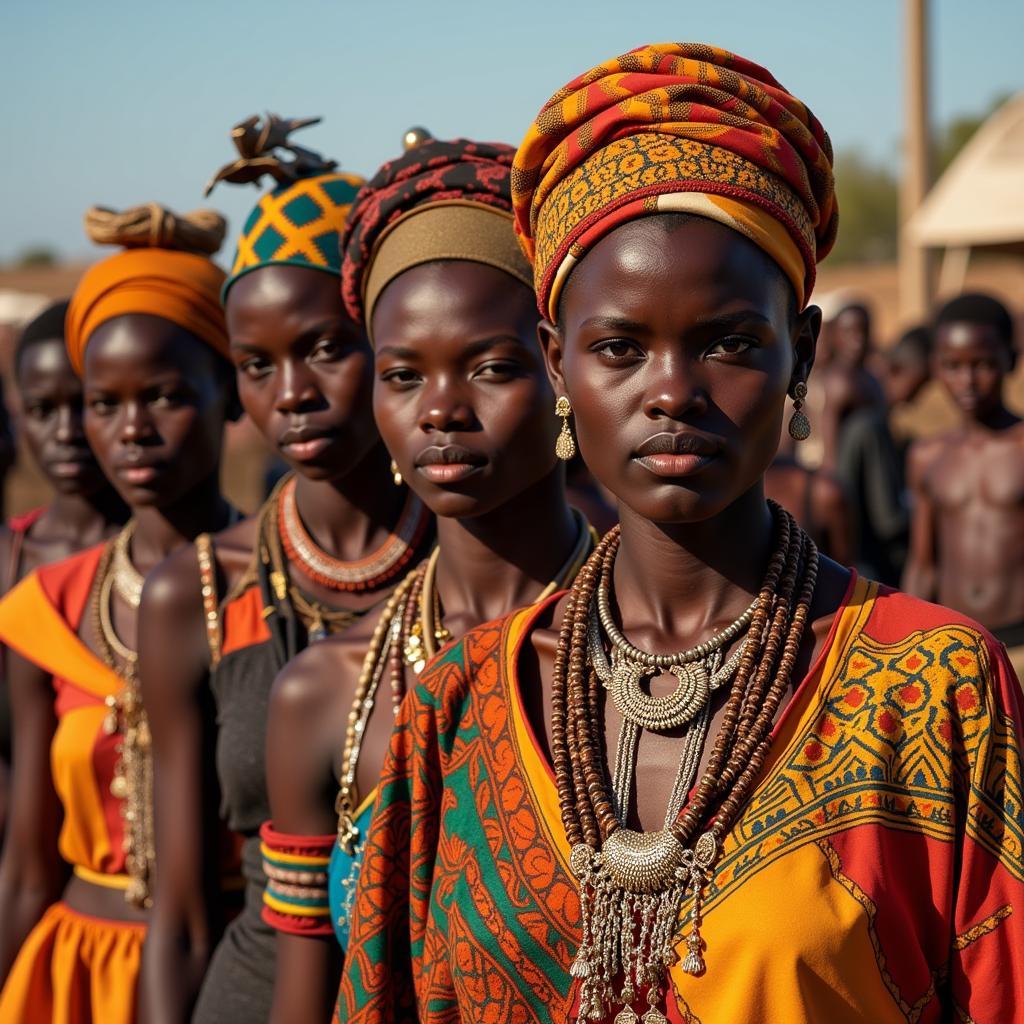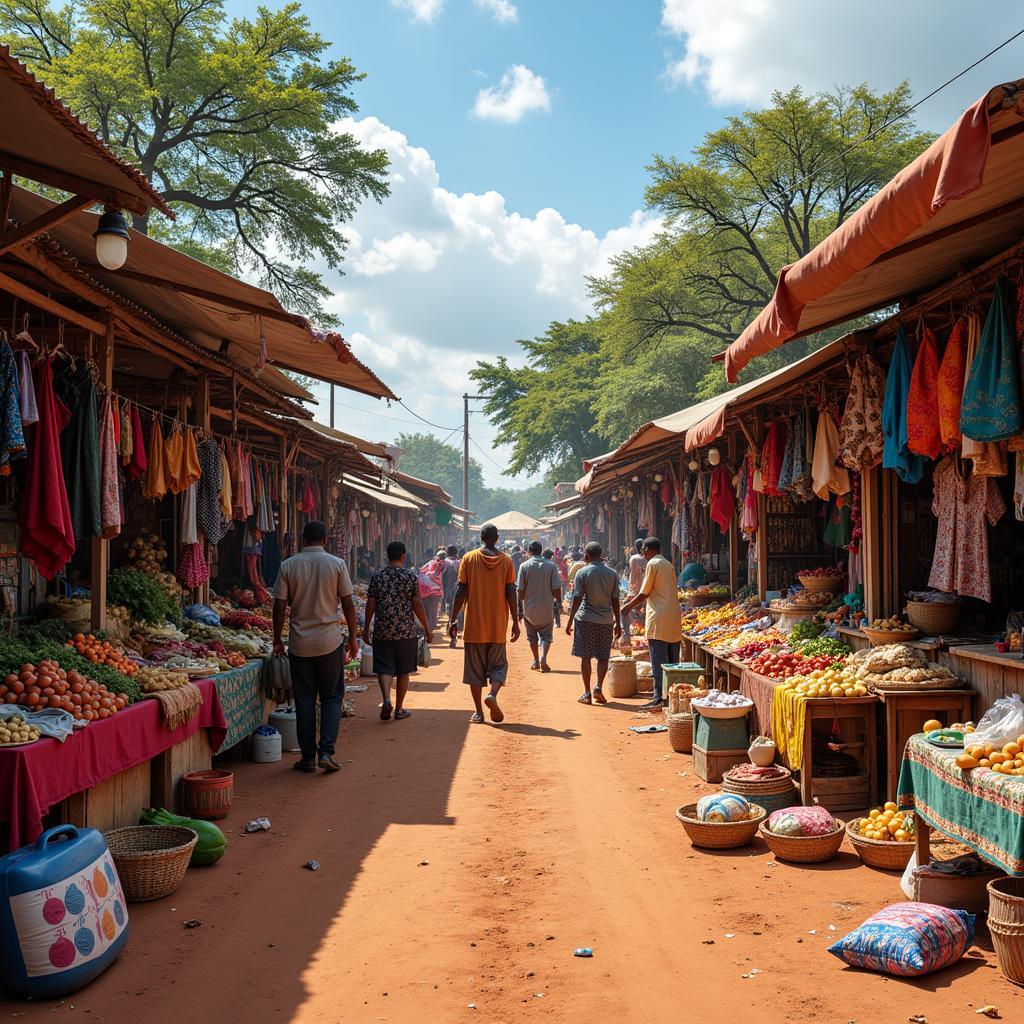Understanding the Term “African Blacky”: A Nuanced Perspective
The term “African Blacky” carries complex and often problematic connotations. While seemingly descriptive, it’s crucial to unpack its historical baggage and understand why it’s considered offensive by many. This article explores the term’s origins, its problematic nature, and the importance of using respectful and accurate language when discussing Africa and its people.
Why “African Blacky” Is Problematic and What to Use Instead
The term “African blacky” is deeply rooted in a history of racism and colonial oppression. It reduces individuals to a single, stereotypical characteristic – their skin color – while ignoring the vast diversity of cultures, languages, and experiences that exist across the African continent. It’s a dehumanizing term that echoes a time when Africans were viewed as less than human, often subjected to brutal treatment and discrimination. Therefore, using this term perpetuates harmful stereotypes and reinforces negative perceptions about Africa and its people.
 Celebrating the Diversity of African Cultures
Celebrating the Diversity of African Cultures
Instead of using this offensive term, there are numerous respectful and accurate alternatives. Referring to people by their nationality, such as “Nigerian,” “Kenyan,” or “South African,” is a much more precise and respectful approach. When discussing the continent as a whole, “African people” or simply “Africans” is appropriate. Moreover, it is important to remember that Africa is a continent with diverse ethnicities and tribes. When possible, using more specific terms like “Zulu,” “Yoruba,” or “Maasai” (when appropriate) acknowledges this rich cultural tapestry.
The Impact of Language and Respectful Communication
Words have power. They shape perceptions, influence attitudes, and can either build bridges or create divides. Using respectful language when discussing Africa is crucial for fostering understanding and appreciation for its diverse cultures. Language that reinforces stereotypes and prejudices only serves to perpetuate ignorance and discrimination.
 Respectful Cultural Exchange Between People of Different Backgrounds
Respectful Cultural Exchange Between People of Different Backgrounds
Furthermore, promoting accurate and nuanced portrayals of Africa is essential to combatting misinformation and harmful stereotypes. By educating ourselves and others about the continent’s rich history, diverse cultures, and the accomplishments of its people, we can contribute to a more informed and respectful global community.
Moving Beyond Stereotypes: Embracing the Richness of Africa
Africa is not a single entity, but a vibrant mosaic of cultures, languages, and histories. From the ancient civilizations of Egypt and Ethiopia to the bustling metropolises of Lagos and Nairobi, Africa offers a wealth of experiences and perspectives that defy simple categorization.
 A Bustling and Vibrant African Marketplace Showcasing Local Goods and Produce
A Bustling and Vibrant African Marketplace Showcasing Local Goods and Produce
Embracing this complexity requires a conscious effort to move beyond stereotypes and engage with the continent’s rich tapestry of human experience. By seeking out diverse voices and perspectives, we can gain a deeper understanding of Africa’s past, present, and future.
Conclusion: Promoting Respect and Understanding
The term “African blacky” is a derogatory and outdated term that should never be used. By understanding its problematic nature and embracing respectful language, we can contribute to a more accurate and nuanced understanding of Africa and its people. Let us strive to use language that celebrates diversity, fosters respect, and promotes meaningful cross-cultural understanding. The true beauty of Africa lies in its diverse people and cultures, and it is our responsibility to represent them with the dignity and respect they deserve.
FAQ
- What is wrong with the term “African blacky”? It is a derogatory term rooted in racism and colonialism.
- What are some appropriate alternatives? Use terms like “African people,” specific nationalities (e.g., “Nigerian,” “Kenyan”), or ethnic/tribal designations (when appropriate and with respect).
- Why is respectful language important when discussing Africa? It helps to combat harmful stereotypes and promote understanding.
- How can I learn more about the diversity of Africa? Explore reputable sources, engage with diverse voices, and actively seek out information about different African countries and cultures.
- What can I do to promote respectful communication about Africa? Correct others who use derogatory terms, share accurate information, and advocate for respectful representation in media and other platforms.
- Is it ever okay to use tribal names? Yes, when appropriate and in a respectful context, such as when discussing specific cultural practices or traditions of that group. Always prioritize respect and accuracy.
- How can I ensure I’m using appropriate language? Research, listen to African voices, and be mindful of the potential impact of your words.
Other Resources on African Life
- Exploring the Diverse Culinary Traditions of Africa
- The Impact of Music on African Culture
- Understanding the History of African Art
Need further assistance? Contact us at +255768904061, email kaka.mag@gmail.com, or visit us at Mbarali DC Mawindi, Kangaga, Tanzania. Our customer service team is available 24/7.
